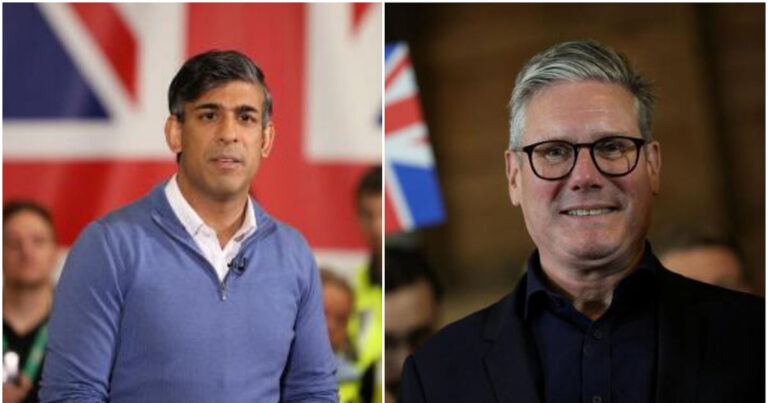LONDON: As Britain enters the final stages of campaigning ahead of Thursday’s general election, a free trade agreement (FTA) with India is expected to be high on the agenda, whether the ruling goes in favour of the incumbent Conservative government or the opposition Labour party.
The two countries have been working towards concluding an agreement to strengthen their £38.1 billion bilateral trade partnership, but talks remain stalled in their 14th round due to India’s staged general elections followed by a general election in the UK.
The FTA negotiations were formally launched in January 2022 when Boris Johnson was UK Prime Minister and have since had to deal with political turmoil, first with Liz Truss serving as chancellor for a short time, followed by Rishi Sunak as the UK’s first Indian-origin Prime Minister.
“We will conclude a free trade agreement with India and establish a deeper strategic partnership in technology and defence,” the Conservative manifesto read, clearly stating the British Indian leader’s vision.
In its section on Scotland, the party’s manifesto notes that among the UK’s key demands in any agreement is to “lose with the US government to permanently remove tariffs on Scotch whisky and work to achieve significant tariff reductions in India through free trade agreement talks”.
Labour, meanwhile, is focused on emphasising its readiness to pass an FTA after the Conservatives missed the Diwali 2022 deadline.
“Many Diwalis have passed without a trade deal and many businesses have been left waiting,” David Lammy, the Indian Party’s shadow foreign secretary, said while speaking at the India Global Forum (IGF) in London last week.
“My message [Finance] With Minister Sitharaman [Trade] “The Labour Party is ready. Let’s finally get the free trade agreement signed and move forward,” Goyal said.
Labour’s manifesto pledge reflects this thinking, saying: “We will explore new strategic partnerships with India, including a free trade agreement, and deepen cooperation in areas such as security, education, technology and climate change.” Liberal Democrat peer Sir Christopher Fox, who sits on the House of Lords International Agreements Committee, which scrutinizes trade deals, has warned that there are “clear obstacles” on the path to an FTA.
“Much work has already been done to lay the foundations for an ambitious free trade agreement (FTA) between the UK and India,” the UK India Business Council (UKIBC) said in its own “manifesto” for strengthening the bilateral partnership, published ahead of the election.
“Concluding an FTA quickly should be the UK government’s top priority. Getting it right will mean faster economic growth, higher productivity and increased private investment in the UK. It will also build trust in areas important to both countries, such as defence, security and tackling climate change, and strengthen the wider UK-India partnership,” the report said.
“We recommend that the UK government prioritise completing the negotiation and ratification of a win-win UK-India FTA that will benefit the goods and services sectors,” the committee said in a set of recommendations to the new administration.
Britain has asked India to significantly reduce tariffs on British exports, but India is concerned about the fairness of the rules applying to Indian workers temporarily brought to Britain on business visas.
Vikram Doraiswami, Indian High Commissioner to the UK, said an FTA with the UK was one of Prime Minister Narendra Modi’s government’s 100-day priorities and that the Indian government had an “unprecedented proposal” on the table.
“What we’re trying to do with this free trade agreement is to expand the depth and scope of our ambition to include the goods and services we want to offer to the UK,” he said when asked about the FTA at the IGF summit.
“Visas are not our number one priority in an FTA. We don’t see it as a means to bring people to the UK, that’s not the aim. What we’re looking for is something that makes sense within the broader framework of international trade and services under GATS Mode 4. [General Agreement on Trade in Services of the World Trade Organisation] He noted that British media has been focusing on visas related to trade negotiations, stressing that this is “to allow people to travel for inter-company transfers and so on.”
Published July 1, 2024 16:53 IST

